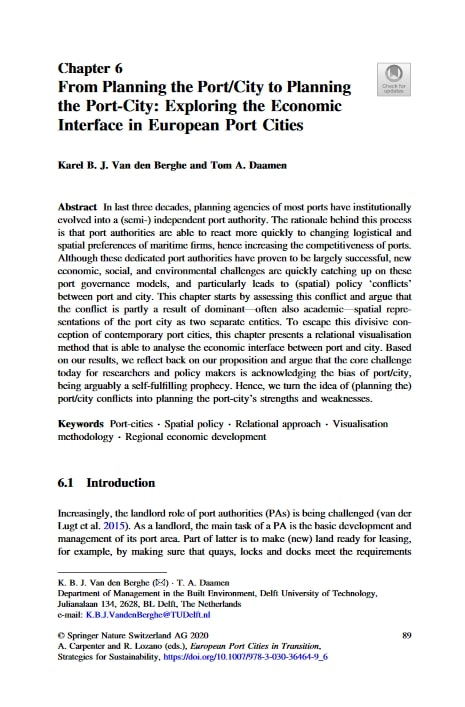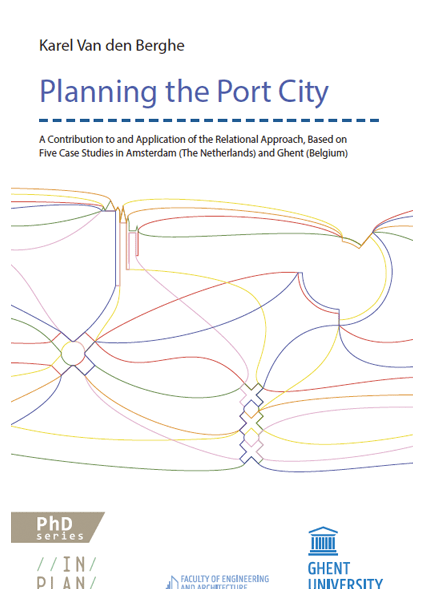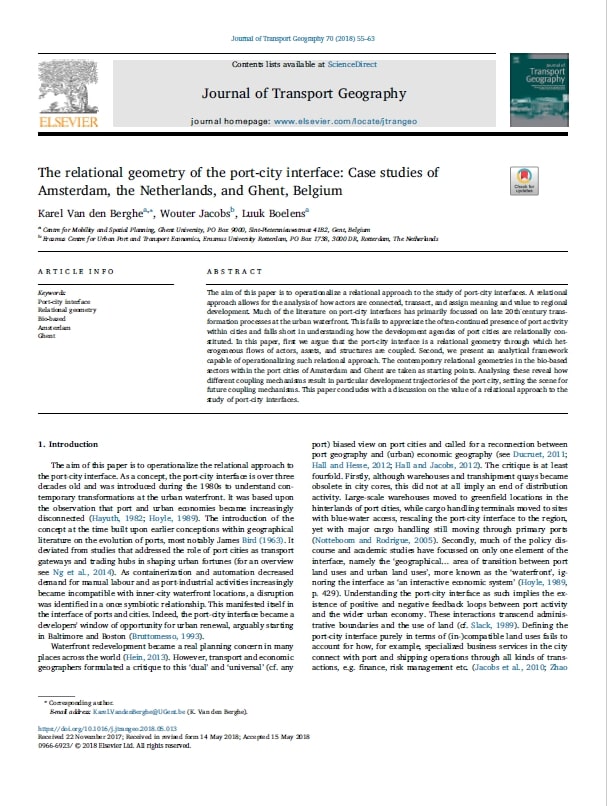Abstract
In last three decades, planning agencies of most ports have institutionally evolved into a (semi-) independent port authority. The rationale behind this process is that port authorities are able to react more quickly to changing logistical and spatial preferences of maritime firms, hence increasing the competitiveness of ports. Although these dedicated port authorities have proven to be largely successful, new economic, social, and environmental challenges are quickly catching up on these port governance models, and particularly leads to (spatial) policy ‘conflicts’ between port and city.
This chapter starts by assessing this conflict and argue that the conflict is partly a result of dominant—often also academic—spatial representations of the port city as two separate entities. To escape this divisive conception of contemporary port cities, this chapter presents a relational visualisation method that is able to analyse the economic interface between port and city. Based on our results, we reflect back on our proposition and argue that the core challenge today for researchers and policy makers is acknowledging the bias of port/city, being arguably a self-fulfilling prophecy. Hence, we turn the idea of (planning the) port/city conflicts into planning the port-city’s strengths and weaknesses.
Keywords: port-cities, spatial policy, relational approach, visualisation methodology, regional economic development
Cite as: Van den Berghe, K., & Daamen, T. (2020). From Planning the Port/City to Planning the Port-City: Exploring the Economic Interface in European Port Cities. In A. Carpenter, & R. Lozano (Eds.), European Port Cities in Transition: Moving Towards More Sustainable Sea Transport Hubs (pp. 89-108). (Strategies for Sustainability; Vol. 1). Springer. https://doi.org/10.1007/978-3-030-36464-9_6


